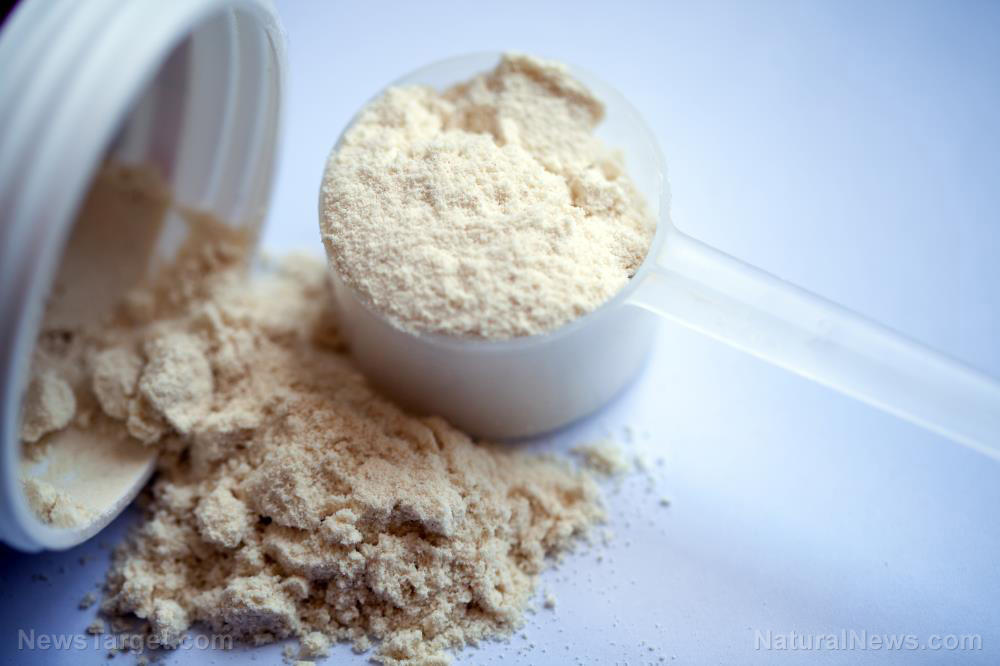Survival medicine: Are you familiar with the medicinal uses of pomegranates?
09/08/2021 / By Divina Ramirez

The pomegranate, one of the oldest known edible fruits, is a small, bright red fruit native to parts of the Middle East and the Himalayas in Northern India. Cut one open and you’ll find several ruby red seeds that can be eaten raw, juiced or added to recipes.
Also known as arils, pomegranate seeds are packed with essential nutrients and powerful compounds, many of which are responsible for the fruit’s health benefits. In fact, practitioners of Ayurvedic medicine, one of the world’s oldest holistic healing systems, have used pomegranates to treat a slew of health conditions for centuries, including typhoid fever, salmonella and cholera infections and diarrheal diseases like dysentery.
For the above-mentioned issues, practitioners would grind pomegranate peel and rind into a powder. Then, they would add a teaspoon of that powder to a cup of boiling water and steep it for 1o to 15 minutes. The beverage can be consumed to relieve inflammation of the gastrointestinal tract, treat diarrhea and calm an upset stomach.
A superfruit loaded with antioxidants
The pomegranate fruit owes its medicinal properties and health benefits to antioxidants, such as anthocyanins, flavonoids and ellagitannins, to name a few. These antioxidants are known for their anti-inflammatory properties, which rival those of other antioxidant-rich foods like red wine and green tea.
Antioxidants play a key role in keeping your body healthy and protecting it from diseases. Your cells are always under threat from harmful chemicals produced inside your body. As your cells produce energy from the nutrients you get from foods, they inevitably create unstable byproducts called free radicals.
At very high levels, free radicals cause oxidative stress, which contributes to aging and the development of various diseases by damaging healthy cells, proteins and DNA.
Oxidative stress can even cause healthy cells to behave abnormally. This is likely why it’s been linked to cancer.
To counteract free radicals, your body uses antioxidants. These molecules can donate electrons to free radicals without turning into harmful chemicals themselves. Antioxidants are naturally produced by your body, but they can also come from the foods that you eat.
Aside from protecting cells from damage, the antioxidants in superfoods like pomegranates also lower low-grade inflammation, which is at the root of chronic conditions like heart disease. A review published in the journal Evidence-Based Complementary and Alternative Medicine also found that the pomegranate fruit may help lower inflammation in the gut.
Other benefits of pomegranates include better blood pressure and blood sugar control, relief from arthritis, improved exercise performance and protection against Alzheimer’s disease. (Related: The risk factors of Alzheimer’s disease.)
Considerations when using pomegranates
Pomegranates and pomegranate juice are safe for most people when enjoyed in typical amounts. However, people who are allergic to pomegranates may experience itching, runny nose and difficulty breathing.
You should also be advised that the root, stem and peel of the pomegranates may be unsafe when eaten in very large amounts. If unsure about the amount of pomegranate to take to treat certain conditions, consult a natural health practitioner.
Pomegranates are in season from late summer to early winter. Look for ones with thin, tough and evenly colored skin. You’ll also want to buy pomegranates that feel heavy because those are juicier.
You can also find pomegranate juice at supermarkets. However, take care to look for juice that is organic. Store-bought pomegranate juice tends to contain sweeteners and other artificial ingredients.
Avoid pasteurized juice as well. Pasteurization kills bad bacteria, but also potent compounds in the juice.
To properly store pomegranates, keep them whole and at room temperature until you’re ready to use the seeds. When kept this way, pomegranates should stay fresh for about a week or two. You can also refrigerate pomegranates, which can help extend that period to three months.
PlantMedicine.news has more articles about plants with medicinal uses.
Sources include:
Tagged Under: alternative medicine, emergency medicinem, Fresh, fruits, functional food, green living, home remedies, medicinal plants, natural cures, natural medicine, Pomegranates, prepper, prepping, prevention, remedies, survival, survival medicine
RECENT NEWS & ARTICLES
COPYRIGHT © 2017 OFFGRID NEWS




















